All kinds of vegetable oils, which one has good nutrition? Eat healthy
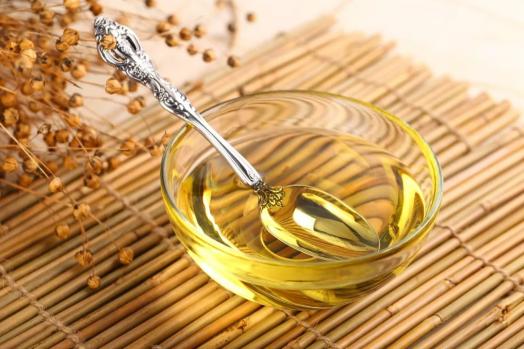
As the old saying goes, "Food is the most important thing for the people", China’s food culture has a long history, and cooking skills such as steaming, frying, frying, stewing, frying and roasting have been developed, and edible oil can be said to be a necessity for cooking. Rational use of oil not only helps to prevent hyperlipidemia, but also helps to reduce the risk of obesity, cardiovascular and cerebrovascular diseases and some tumors, which is of great significance to health. So, how can we make good use of cooking oil?
There are many kinds of vegetable oils with good nutrition.
At present, vegetable oil is the protagonist of the edible oil market. Vegetable oil is an oil extracted from plant seeds, fruits or nuts, such as soybean oil, corn oil, peanut oil, rapeseed oil and olive oil.
The nutritional value of vegetable oil should be comprehensively evaluated from the aspects of digestibility, essential fatty acid content, fat-soluble vitamin content and stability. Among them, the digestibility, the content and stability of essential fatty acids are closely related to the types of fatty acids contained in vegetable oil, so the nutritional value of vegetable oil is mainly reflected by the fatty acids contained in it.
Fatty acids can be divided into three categories according to the saturation and unsaturation of hydrocarbon chains, namely saturated fatty acids, monounsaturated fatty acids and polyunsaturated fatty acids. Fats rich in monounsaturated fatty acids and polyunsaturated fatty acids are liquid at room temperature, and most of them are vegetable oils, such as peanut oil, corn oil, soybean oil and rapeseed oil, except coconut oil, cocoa oil and palm oil.
Fat with saturated fatty acids as the main component is solid at room temperature, mostly animal fat, such as butter, sheep oil, lard and so on. But there are exceptions. Although deep-sea fish oil is animal fat, it is rich in polyunsaturated fatty acids, such as eicosapentaenoic acid (EPA) and docosahexaenoic acid (DHA), so it is liquid at room temperature.
Studies have shown that monounsaturated fatty acids can regulate blood lipids and prevent atherosclerosis, thus reducing the risk of cardiovascular diseases. Linoleic acid, α -linolenic acid, etc. are polyunsaturated fatty acids that the human body cannot synthesize by itself and can only be ingested from food (mainly from vegetable oil). Nutritionists call them essential fatty acids. Without them, the human body will develop slowly and even cause damage to the liver, kidneys and nerves.
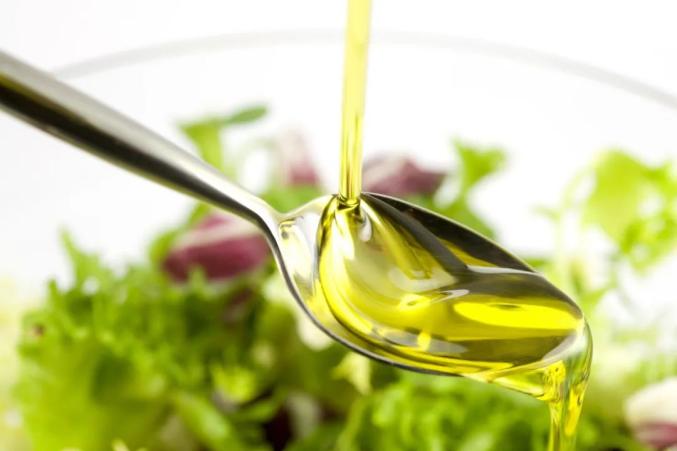
How to eat edible oil reasonably
Excessive intake of edible oil will lead to chronic diseases such as hypertension, hyperlipidemia, diabetes and coronary heart disease. Therefore, the reasonable intake of edible oil should start from both quality and quantity.
First, it is recommended that you use vegetable oil as the main cooking oil. Different vegetable oils contain different fatty acids or other nutrients, so the types of vegetable oils must be diversified. When choosing vegetable oil, it is suggested to give priority to vegetable oil with high unsaturated fatty acid content and low saturated fatty acid content, such as olive oil and peanut oil. In addition, different kinds of vegetable oils can be used in rotation to avoid the nutritional imbalance caused by long-term single consumption of a certain vegetable oil.
Second, the amount of edible oil should be appropriate. The consumption of edible oil recommended by the Dietary Balance Pagoda of China Nutrition Society is 25g per person per day, but the specific intake should be determined according to the individual’s age, gender, physical condition and activity level. For example, patients with hypertension, hyperlipidemia and overweight and obesity can consume less edible oil. At the same time, from the perspective of health, it is suggested that the intake of animal oil should be reduced as much as possible on the premise of appropriate intake of oil.
Collect the following pictures to understand the composition of different edible oils.

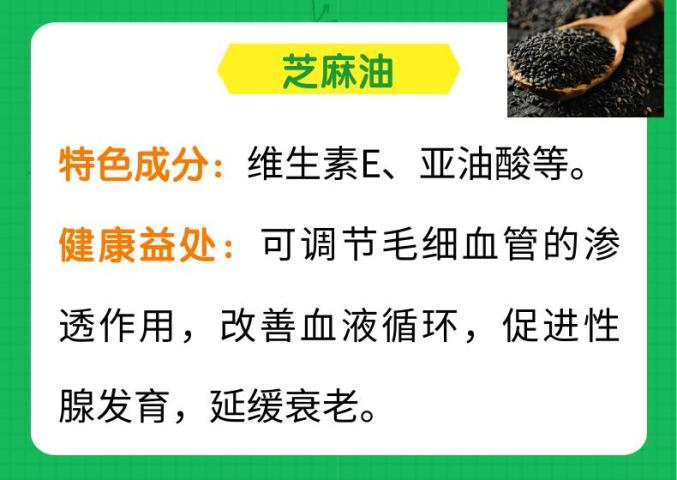
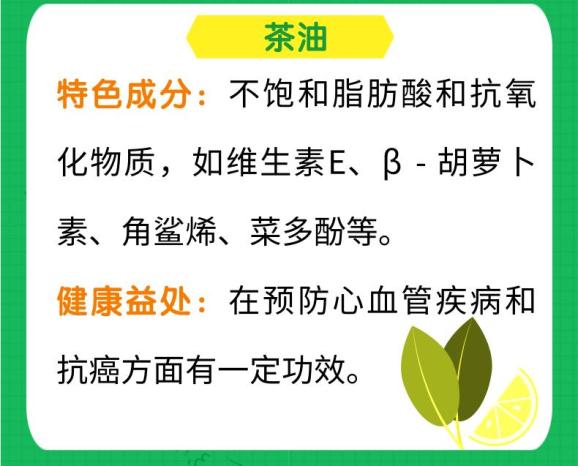
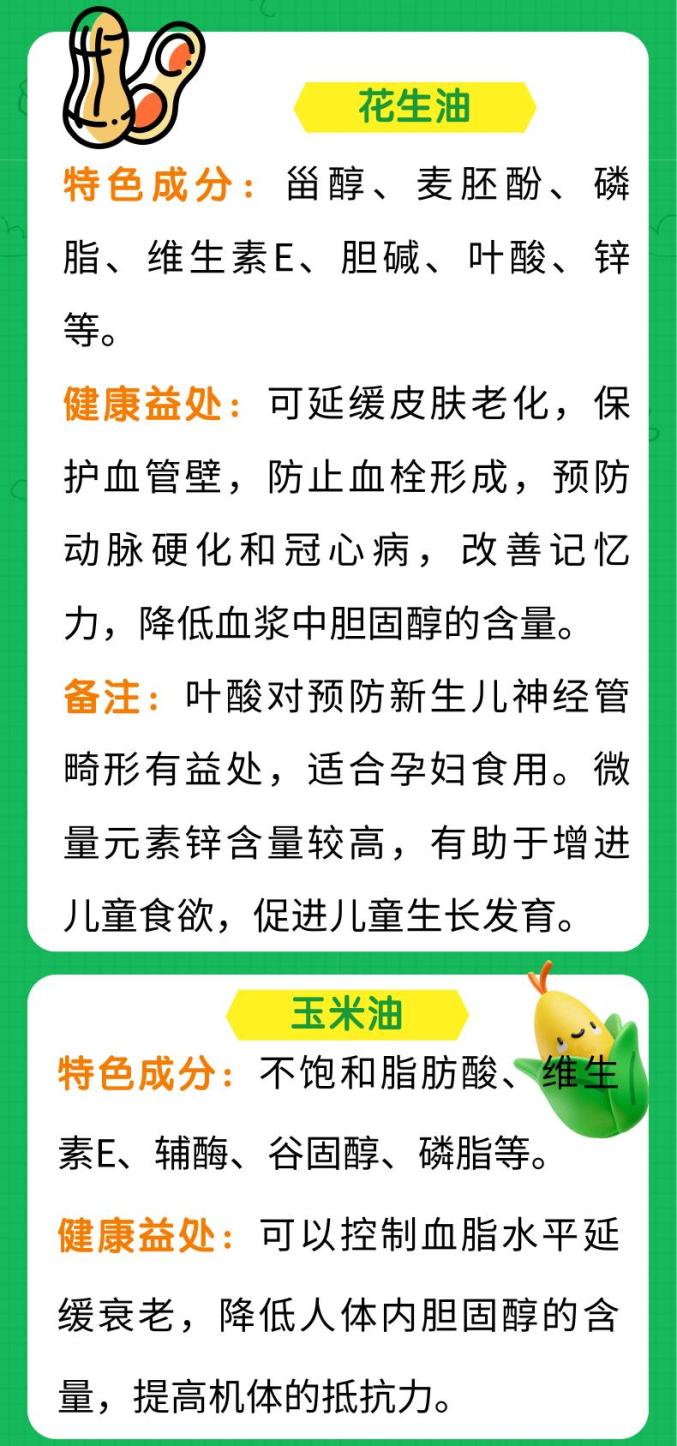


Author: Guo Yuting of Shanxi Medical University
Cheng Jingmin, member of the national health science expert database and professor of Shanxi Medical University.
Planning: Zheng Yingkun Wang Ning
Editor: Mu Xinyu continues to slide to see the next touch to read the original text.
Read the original text